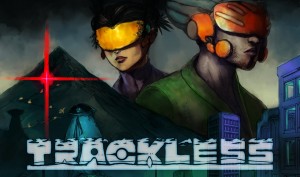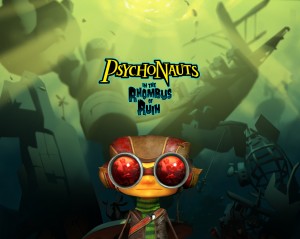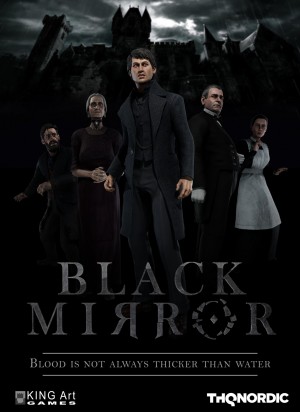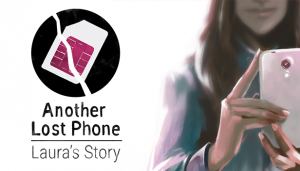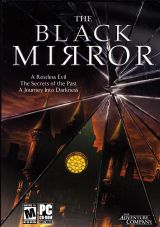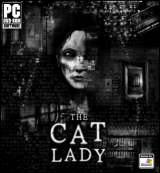Review for Walden, a game
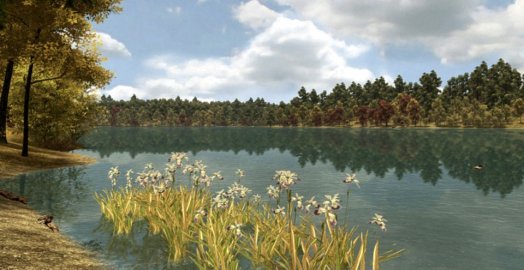
As its title suggests, Walden, a game is an interactive adaptation of Henry David Thoreau’s book of the same name. Developed by Tracy Fullerton, its production took more or less ten years, and it shows. The design and conceptualization of this first-person, open world environment are very meticulous, and evident effort has been made to create an experience that stays true to the spirit and views of Thoreau, as chronicled during his time spent living alone in the woods surrounding Walden Pond, USA. A transcendentalist intellectual, Thoreau’s seclusion was his experiment in showing how people can do better close to nature, without the corrosive influence of society. He wanted to prove that we do not need any excesses, and by working hard to provide for our bare necessities we enjoy a happier and more fulfilling existence. Walden tries to transfer this vision through slow-paced gameplay in which reflection takes the leading role. Unfortunately, there are some serious drawbacks counteracting this intent, from monotonous routines to a lack of player agency in influencing how events play out.
This type of game is certainly not for everyone, but Walden does not pretend otherwise. The player spends a game year living as the author did in his cabin in the woods. Emphasis is given to the philosophical nature of the experience rather than the activities themselves. This means the scope of interaction is quite limited, with much of the time allotted for chopping wood and fishing. Physical activities require a bit more intricate mouse movement, but the overall controls are very standard: keyboard and mouse for orientation, the left mouse button used to interact with objects, right button to inspect more closely. There is a detailed tutorial incorporated into the beginning of the game, but it is unlikely that anyone will get confused since the points of interaction are very few and very obvious. Most of them are glistening arrows, which when activated trigger voiced-over excerpts from the book. These excerpts have nothing to do with the game’s own plot, since there is none. Instead, they serve as quotes to familiarize you with Thoreau’s ideas for a general comprehension of his work. In other words, they constitute a narration of the environment you have come to explore.
Where Walden goes wrong over the course of its six hours is in failing to allow for enough player agency. Assuming the role of Thoreau is an interesting idea, and for educational purposes this could prove a successful supplement to the author’s text – particularly because it intertextualizes other important works of human intellectualism that inspired Thoreau, in the form of books one can read inside the game. But Walden as a first-person experience does not have much merit on its own. It starts off as a refreshingly new direction in what games as a medium can achieve, but soon turns to tedious, uninspiring repetition. If the game were shorter, preferably one-third of its playtime, it would probably have a positive effect, though even then there are aspects that threaten to undermine its objectives.
Ιf one does not agree with Thoreau’s opinions, the game is likely to be an excruciating experience, because his tone is very dogmatic and categorical. Of course, the same applies to reading his book, but in Walden it becomes more prominent since the player is Thoreau. So if you are not convinced by the musings and absolute truths of his exclamations, then the whole exercise is transformed into a chore. Even if you do agree with him, Walden represents an intellectual contradiction: considering that Thoreau talked against superfluous tasks that are unnecessary for our survival, gamifying his rationale completely unhinges it.
The photorealistic game art is very beautiful and faithful to the essence of Walden Pond, the instrumental music fitting for the serene ambience, and the soundscape welcoming with bird song, the rustling of tree leaves and the movement of water, but – and this is a major but – it is not a physical environment. You are there only in an embodied state through your avatar. You cannot feel the wind in your face, you do not get tired by handiwork to appreciate the respite that comes afterwards, and you do not get hungry or cold, so as to worry about provisions. Most importantly, you do not walk in the forest; you simply keep pressing a button forward, which is a totally different action that in turn does not facilitate the same openness to self-reflection – especially if you have to do it for six hours!
What Walden fails to appreciate is that while it may be inspired by a book, a game is a much different experience. A player, by default, has a much more active role in a game world and the interactive design needs to keep up. While reading Thoreau's book, you cannot do anything but follow in his steps as he's recounted them. In the game, you are not forced to do that, and if the only way it can oblige you to do so is by making you repeat the same actions over and over again, then this is not a path to self-discovery but to boredom. This results in a distancing of the player from Thoreau’s paradigm; instead of wanting to live in his shoes, you may start antagonizing him instead. And ironically, this all occurs inside a video game whilst Thoreau expressly talked against the usage and implementation of technology.
Compounding matters, you’ll soon discover that your in-game actions have no repercussions whatsoever. True, if you do not eat frequently or if you work too hard, you will faint from exhaustion. This is no big deal, however, because someone from the village saves you and the game resumes immediately with no alteration of its state. Moreover, supposedly you must live by your own means as a food gatherer, so as to prove that society is redundant. At the same time, Walden gives you the option to go to the village of Concord, Massachusetts, where you can eat pies your mother makes and take the clothes she has mended for you. There you will also sell articles for papers and journals or undertake part-time jobs for money, which can then be used to buy provisions. Isn’t that hypocritical? If the goal of the game is to make you choose to refrain from these ‘luxuries’ so as to correspond to Thoreau’s stance, this did not come across. To be fair, Thoreau himself did occasionally visit Concord for provisions, which was a way of demonstrating how difficult it is to live truly self-sufficiently. Nonetheless, the game itself does not manage to convey the rationale behind this concession.
Leaving these conceptual problems aside, the environmental design is painstakingly authentic. The passage of time, the change of seasons, and the weather are all implemented exceptionally. In the woods surrounding your cabin you can find berries and seeds according to season, the lake freezes over during winter, and in general you feel like you are in a living environment that is attuned to you as you must become attuned to it.
In the beginning, Walden requires from you to actually build – or finish building, more accurately – your own shack to live in for the rest of the game, but it needs to be kept in good condition through regular repair work. The same goes for your clothes, and you must keep replenishing your wood supplies and food. However, when you work too hard or run for too long – you can either walk or run – Thoreau becomes tired and his inspiration level drops. A creative touch when this happens is that everything around you becomes gray in color. This forces you to slow down and visit one of the inspiration cairns around the woods to restore your inspiration.
In addition to the basic chores you must attend to, your sister Sophia has created a little game for you, like a treasure hunt. She’s written clues about where in the woods to find treats that she has left. This is an inventive way to make you move around the environment and become familiar with it, but again the game takes all the fun out of the experience. There is no way for you to understand Sofia’s riddles, since they are too broad. So you can either wander around aimlessly on the rare chance of happening upon the designated spots or you can access the map and see the X marks of the places you need to go. Even if you figure out where to go next, it would be rather impossible to complete this task without consulting the map every other minute, as most of your surroundings are indistinguishable by helpful landmarks.
As a largely solitary experience, you’ll only occasionally interact with three secondary characters: the postman, the greengrocer, and primarily your friend and mentor Ralph Waldo Emerson. The latter consists of him asking you to find his books that he has lost somewhere in the woods – and of course they too are highlighted on the map so you only have to orient yourself to find them. With all the other people mentioned in the game (your sister, the scientist Louis Agassiz, etc.), you communicate simply by letters. This is quite frustrating because outside of Thoreau’s quotes, the only semblance of narration this game has is revealed through these letters, and again you have zero agency to react. There is only one instance in which you actually become part of the story of Thoreau’s life, but even then only as an aftereffect with no ability to exercise control.
If I could sum up the whole experience of Walden, a game in one sentence, it would be "verisimilitude is overrated." The photorealism is indeed a thing to behold, and the mise en scène, complemented by the music and sound effects, creates an impactful ambience of fabricated nostalgia for an era in which life was uncomplicated and slow. It reminded me of a Bob Ross painting. Yet no matter how idyllic these paintings are, what would it feel like existing in them? Walden has the answer for you, and regrettably it is: boring. Living your own life involves many periods of tedium, so imagine living someone else’s with no choice, conflict, tension, pathos, or really anything but self-sustaining chores, and even then without the benefit of actual sensory stimulation, because this is a virtual experience rather than a physical one. Games do not need to strive to be real life. When they do, they always come up short. Walden, a game is the proof of that.










